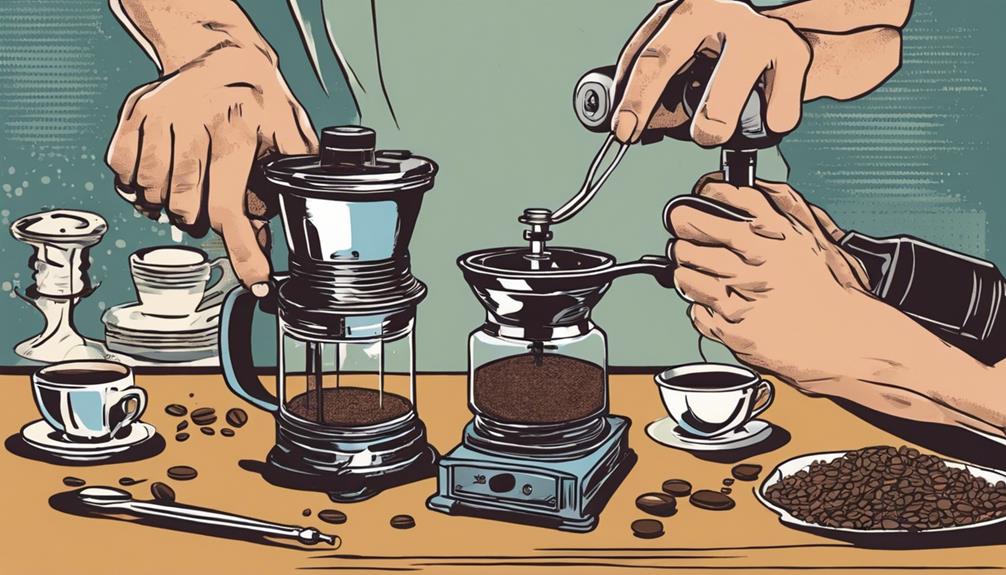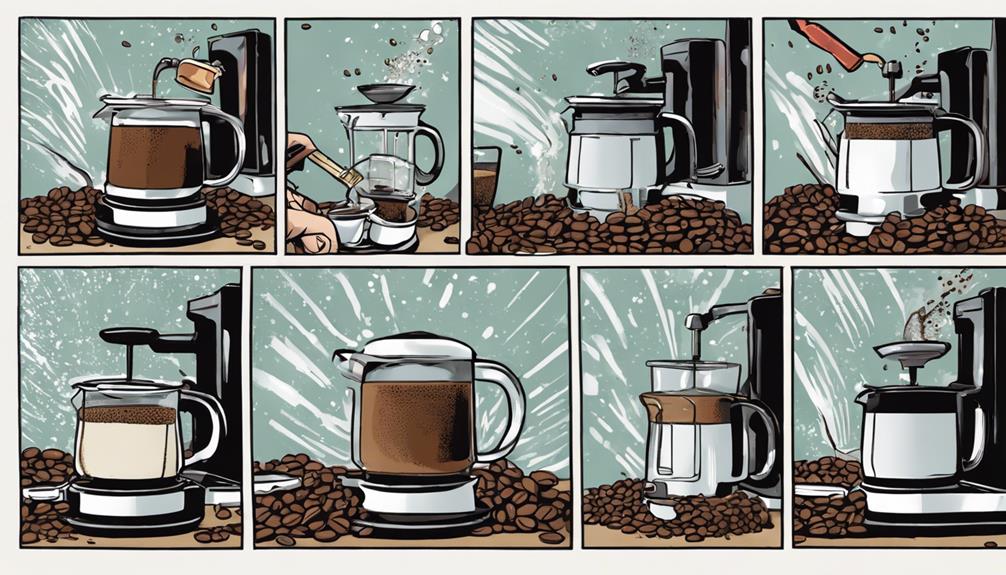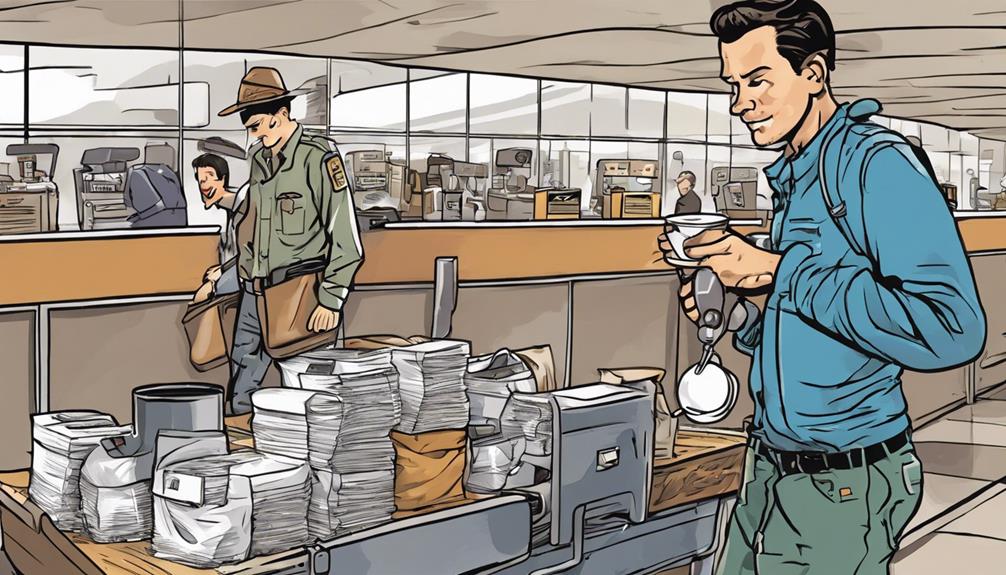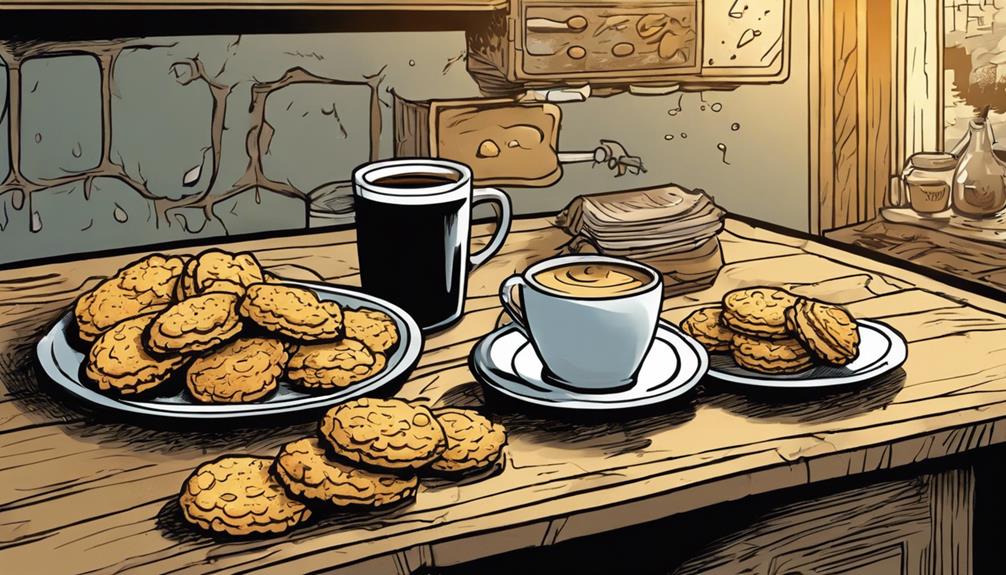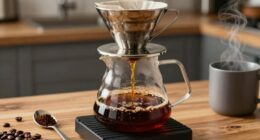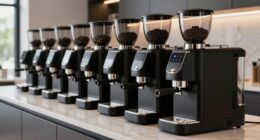Adjusting the size of your coffee grinder is essential for achieving the perfect brew. Begin by familiarizing yourself with your grinder’s current setting. Make small tweaks according to your preferred brewing method. Experiment and adjust until you reach your desired taste. The grind size will vary depending on the brewing method – using a coarse grind for French press and a fine grind for espresso. Consistency can be achieved by using a timer. Adjust the extraction time to enhance the flavors. Keep in mind that fresh beans may require different adjustments. Factors such as weather, roast date, and the type of beans can also impact the modifications needed. It takes practice and skill to master the art of coffee grinding! Explore more tips to elevate your coffee experience even further!
Key Takeaways
- Understand brewing method requirements for grind size adjustment.
- Make gradual changes to grind settings based on taste preferences.
- Keep track of adjustments for consistent flavor extraction.
- Consider factors like bean freshness and humidity for accurate grind adjustments.
- Monitor extraction time and flavor profile to fine-tune grind size.
Understanding Coffee Grinder Mechanisms
To understand coffee grinder mechanisms, focus on how burr grinders use two abrasive surfaces to crush coffee beans uniformly. Burr grinders are renowned for their ability to deliver consistent grind sizes, essential for top-notch flavor extraction in specialty coffee brewing.
There are two main types of burrs found in grinders: conical burrs and flat burrs. Conical burrs produce a slightly uneven grind, while flat burrs guarantee uniformity in coffee grounds.
The adjustment ring on burr grinders plays a pivotal role in grind size adjustment by altering the distance between the burrs. This feature allows for precise customization, catering to various brewing methods and flavor preferences.
With burr grinders, you can achieve an exceptional level of control over your grind size, ultimately enhancing the flavor profile of your coffee.
Determining Ideal Grind Size
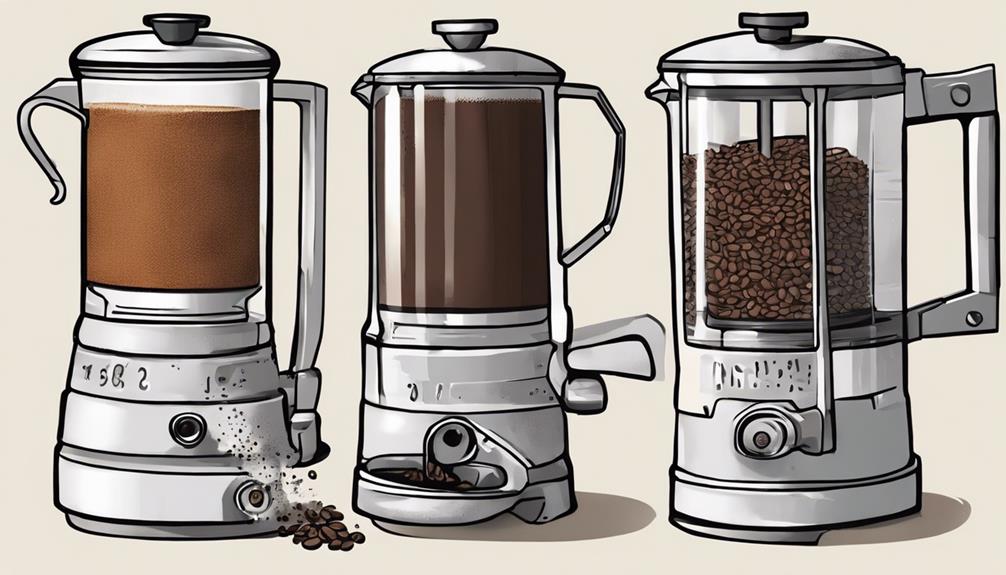
Understanding the ideal grind size for your coffee beans is fundamental to achieving the best flavor extraction in your brewing process. The grind size you choose is directly linked to the brewing method you use.
For example, a French press requires a coarse grind, while an espresso shot needs a fine grind for optimal extraction. The grind size also influences extraction time, with coarser grinds allowing for quicker extraction and finer grinds leading to slower extraction, affecting the flavor profile of your coffee.
Adjusting your coffee grinder based on the age of the coffee beans is necessary to maintain consistency in flavor extraction. Consistent extraction time is essential for a well-balanced espresso shot, and monitoring extraction with a timer during grind adjustments ensures the quality and taste of your coffee remains constant.
Step-by-Step Grind Adjustment Process
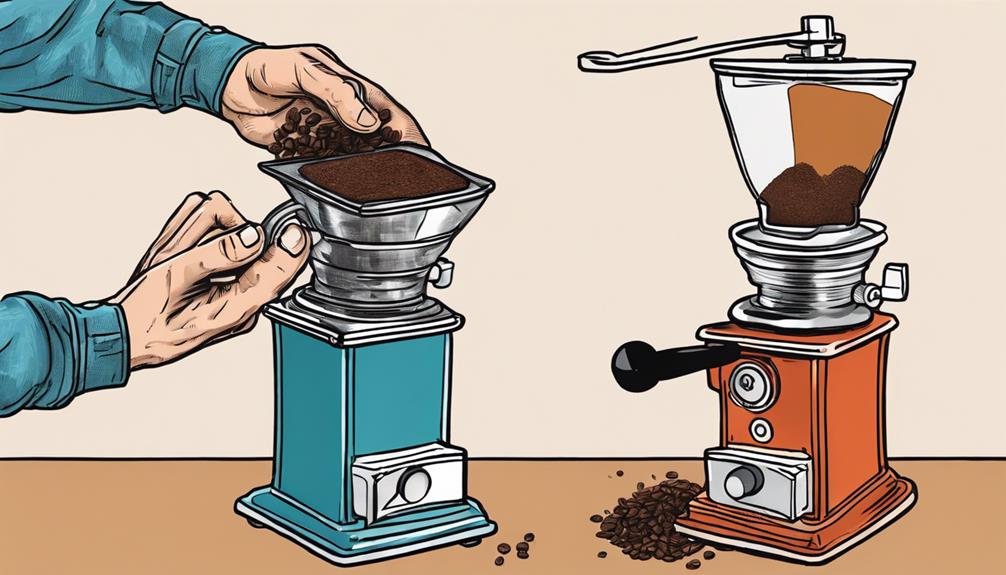
Begin by identifying the current grind size setting on your coffee grinder.
To start adjusting your coffee grind size, make small adjustments to the grind setting based on your preferred coffee brewing method.
It's crucial to test the new grind size by grinding a small amount of beans and brewing a sample to evaluate the flavor profile.
If the extraction isn't to your liking, continue making small adjustments until you achieve the desired taste.
Remember to keep track of the changes you make to the grind size to maintain consistency in your coffee brewing.
Whether you're using a Burr Grinder or another type of coffee grinder, the key is to make gradual modifications to the grind setting until you reach the perfect balance that complements your chosen brewing method.
Optimizing Grind for Different Methods

For achieving best results in different coffee brewing methods, adjusting the grind size to match each method's requirements is essential.
Here are some tips to enhance your grind for various brewing methods:
- Espresso: Utilize a fine grind when preparing espresso to ensure a strong and flavorful shot by increasing the surface area for extraction.
- Drip Coffee: Aim for a medium to medium-fine grind for drip coffee to achieve a balanced flavor profile and peak extraction, preventing uneven extraction issues.
- French Press: Opt for a coarse grind when using a French press to enhance the flavor and prevent bitterness in your brew, resulting in a rich and smooth cup of coffee.
Reasons for Grinder Adjustments

You may need to adjust your coffee grinder size for various reasons related to bean freshness, environmental factors, and extraction requirements.
Coffee beans age impacts their natural gas content and extraction speed, prompting the need for adjustments in grind size. Fresh beans, especially those with higher gas levels, often require a finer grind setting to achieve best extraction.
Conversely, humidity can cause beans to swell, leading to the necessity of a coarser grind adjustment. Weather fluctuations also play a role, requiring regular grind size adjustments to maintain consistent coffee quality.
In commercial settings, where humidity levels can vary substantially, multiple daily grind adjustments may be necessary to ensure the perfect grind size for each batch. Factors such as the roast date, bean type, finer grind for Espresso machines, and the coffee dose all influence the need to adjust the grinder settings to achieve the desired extraction results.
Frequently Asked Questions
How Do You Adjust the Grind Size on a Coffee Grinder?
To adjust the grind size on your coffee grinder, simply turn the dial or adjust the burrs to make the grind finer or coarser. Experiment with small tweaks to find the perfect size for your brewing method. After making adjustments, it’s important to test the grind to ensure it’s producing the desired flavor and extraction. If the coffee is tasting too bitter or sour, try adjusting the grind size accordingly. Remember, the key to a great cup of coffee is often found in the details, and adjusting coffee grinder grind can make all the difference in the final result.
How to Get Coffee Grind Size Right?
To get your coffee grind size right, start by understanding the impact of grind size on flavor. Experiment with small adjustments, testing after each change. Remember, grind size greatly influences the taste balance of your coffee.
What Is the Perfect Grind Setting?
To find the perfect grind setting, adjust based on your brewing method. For espresso, aim for a fine grind; for French press, opt for coarse. Experiment to control flavor extraction and achieve a balanced cup.
How Do You Adjust Coffee Grind Ages?
When adjusting coffee grind ages, consider the bean's gas levels and humidity. Fresh beans may need a finer grind for extraction balance, while swollen beans may require a coarser setting to prevent over-extraction. Weather changes demand regular adjustments for consistency.
Conclusion
Now that you know how to adjust your coffee grinder size, you can realize the full potential of your coffee beans.
Experiment with different grind sizes to find the perfect balance for your preferred brewing method.
Whether you enjoy a bold espresso shot or a smooth pour-over, your freshly ground coffee will taste better than ever before.
So go ahead, grind away and savor every sip of your perfectly brewed cup of coffee.
Cheers to a great start to your day!
